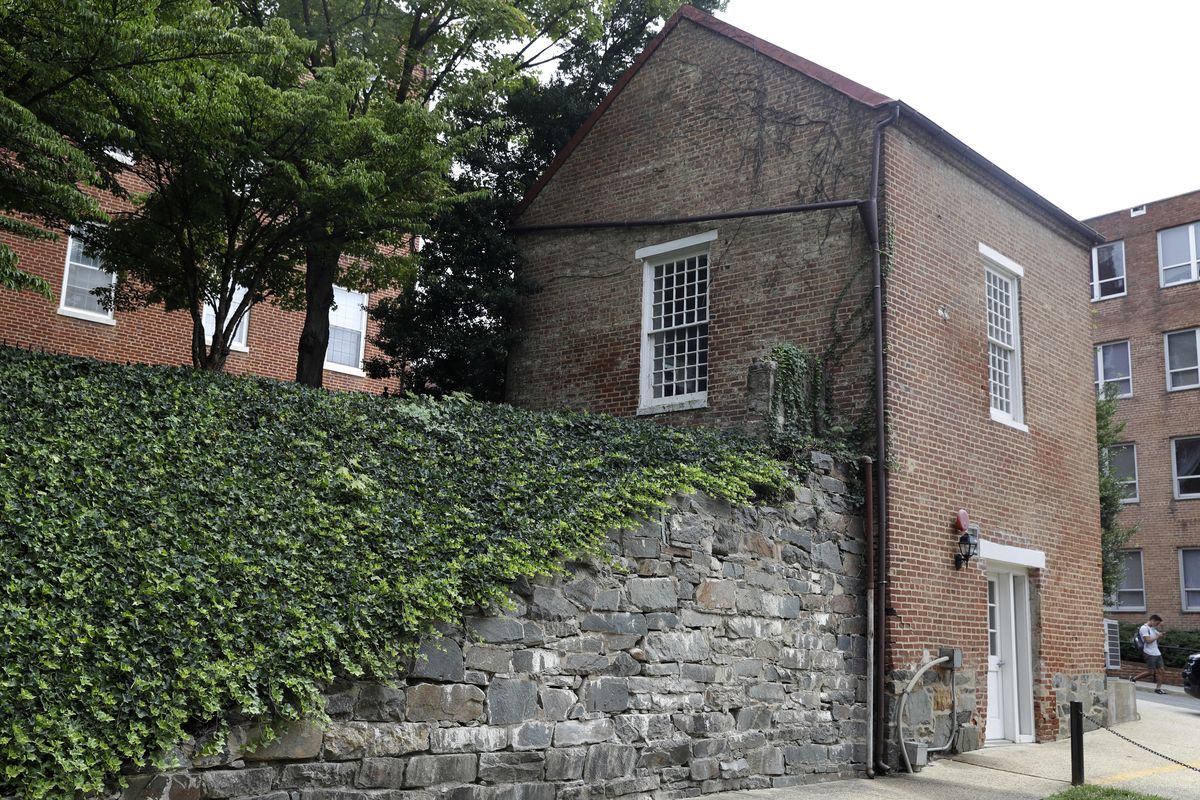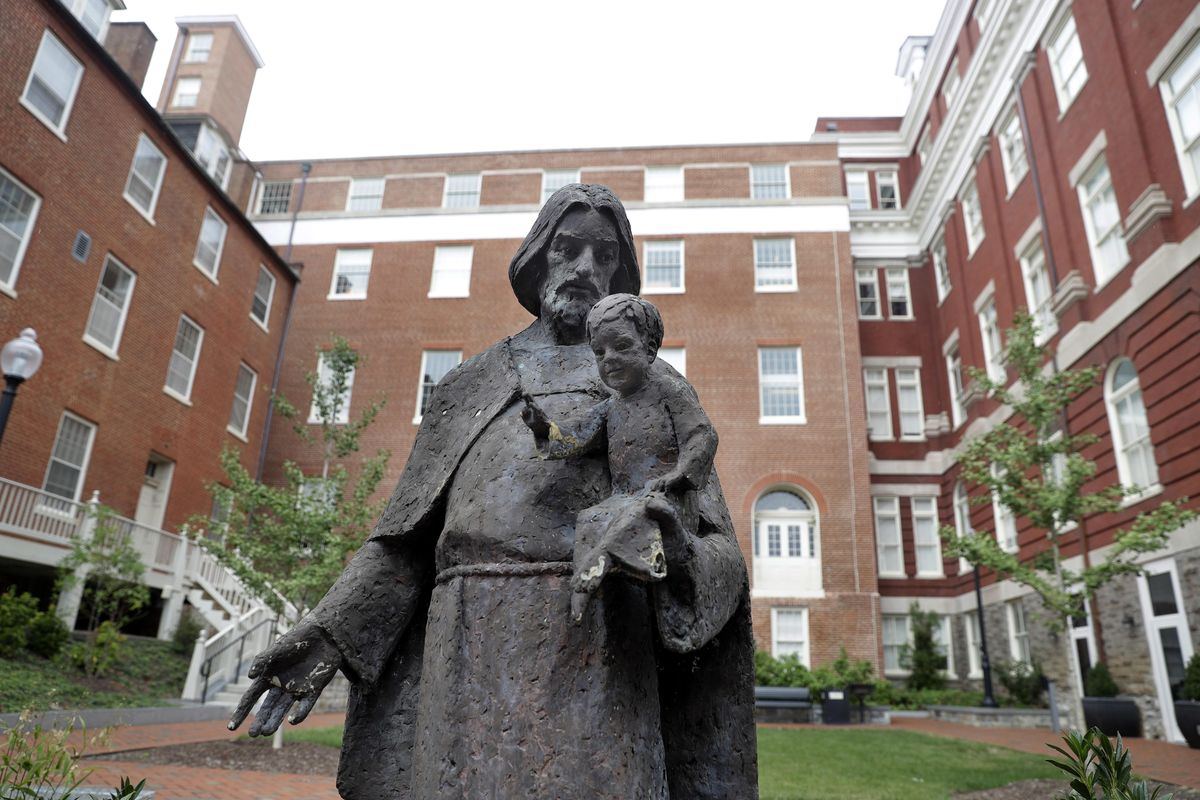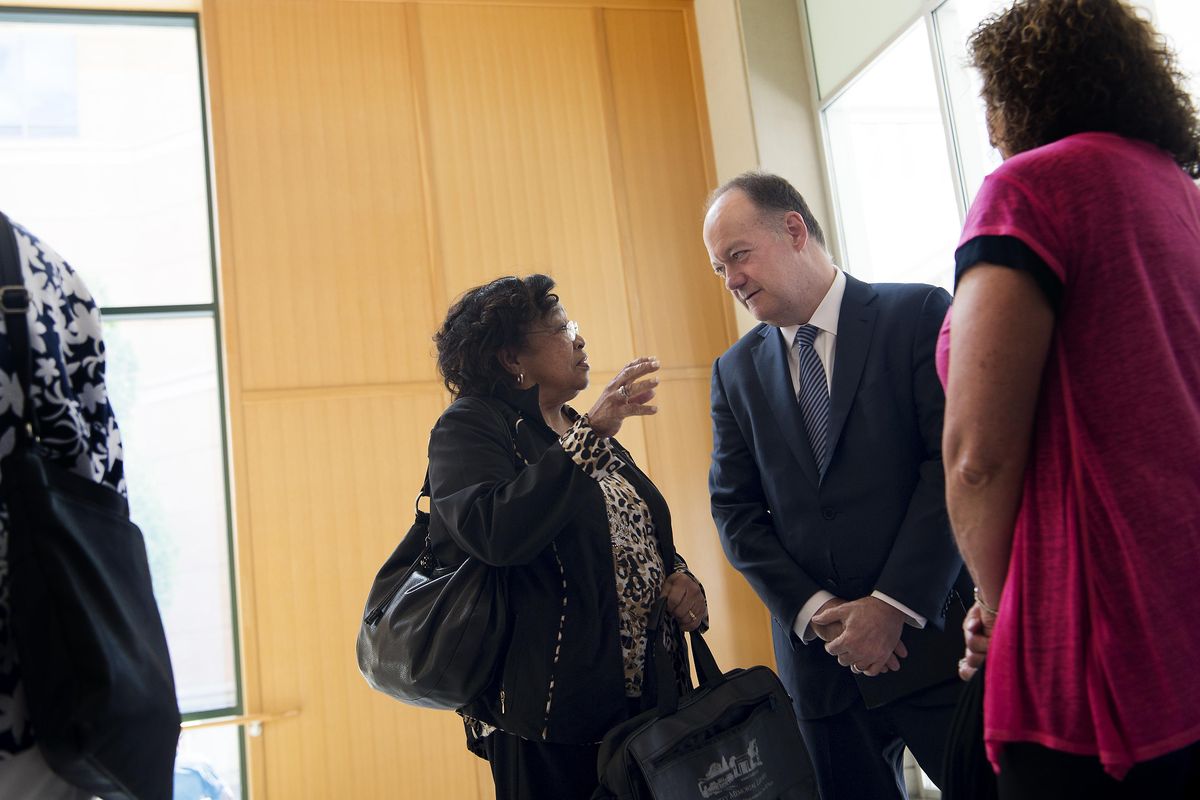Spokane descendant visits Georgetown as school announces plan to make amends for sale of slaves
Patricia Bayonne-Johnson, the descendant of a slave family sold by Georgetown University in the 1830s to settle debts speaks with Georgetown University President John J. DeGioia on Monday, June 13, 2016, at Spokane Public Library in Spokane, Wash. (Tyler Tjomsland / The Spokesman-Review)Buy a print of this photo
Patricia Bayonne-Johnson happened to be in Washington D.C. this week as Georgetown University announced its efforts to acknowledge and make amends for its history in the slave trade.
The Spokane resident, who is a descendent of slaves sold by Georgetown to settle debts, was able to tour the campus and attend the unveiling of a university report about the sale of slaves.
“It’s a step in the right direction,” said Bayonne-Johnson, the 74-year-old president of the Eastern Washington Genealogical Society, on Thursday.
John DeGioia, Georgetown’s president for the past 15 years who visited Bayonne-Johnson and her group in Spokane earlier this summer, announced this week the school would give preference in admissions to the descendants of slaves owned by Maryland Jesuits. Bayonne-Johnson’s great-great-great grandfather, Nace Butler, was among the 272 men, women and children sold to Louisiana plantations in an 1838 deal orchestrated by the Rev. Thomas Mulledy, shortly after his first tenure as president of the university.
Bayonne-Johnson toured the campus of the college for the first time Wednesday, ahead of her planned attendance at the International Black Genealogy Conference, to be held in the nation’s capital this weekend.
DeGioia announced this week the school will reach out to descendants of the sold slaves and recruit them to attend, as well as offering them the same preference in the admissions process that’s given to relatives of alumni. The Eastern Washington Genealogical Society, in addition to weekly volunteering at the downtown Spokane public library, have been working to identify living descendants of the 272 sold slaves, in cooperation with a Georgetown alumni group headed by Richard Cellini and other researchers.
In addition, Bayonne-Johnson said a foundation had been established by known descendants of the sold slaves. Recruitment efforts had been hindered by recent disastrous flooding in the parts of Louisiana where the Maryland slaves relocated, she said.
A report released Thursday, authored by a working group on Georgetown’s campus that was convened at DeGioia’s request last year, called on Georgetown to issue a formal apology for the sale of slaves.
The university already had committed to renaming two buildings that had originally been named for the priests who orchestrated the sale. Bayonne-Johnson said she was shown the Mulledy name placard that was removed from one of the buildings last year.
On Thursday, DiGioia announced that those buildings will be named after Isaac, the enslaved man whose name is the first mentioned in documents of the sale, and Anne Marie Becraft, a free African-American woman who founded a school for black girls in the Georgetown neighborhood in 1827.
Georgetown also will create a memorial to the slaves whose sale benefited the university, and it will establish an Institute for the Study of Slavery and its Legacies to support continued research into the history of slavery and engagement with descendants.
After touring the campus, Bayonne-Johnson ate lunch with professors and other faculty members at the campus Wednesday. Marcia Chatelain, a professor of African-American history, presented her with a signed copy of her new book, “South Side Girls: Growing Up in the Great Migration,” which included an inscription.
“It says, ‘Thank you for helping Georgetown tell the story that needs to be told,’” Bayonne-Johnson said Thursday, reading from the book.
Associated Press reporters Ben Nuckols and Collin Binkley contributed to this story.


